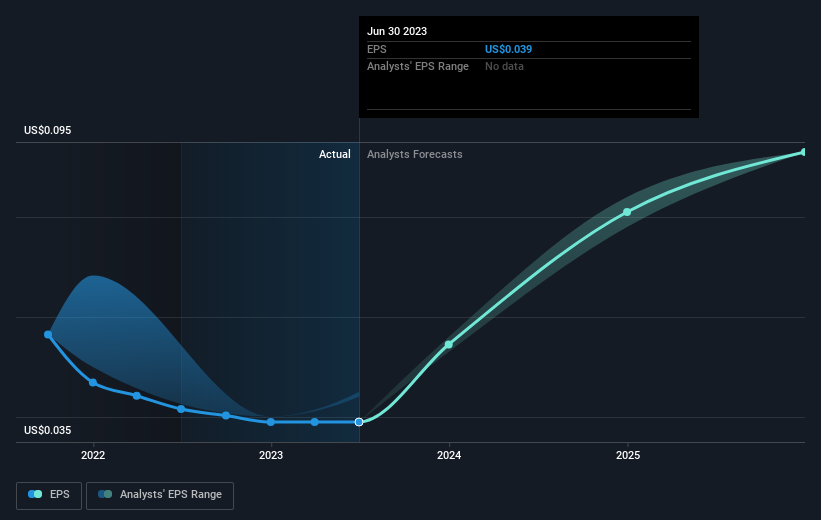China Aviation Oil (Singapore) (SGX:G92) shareholders have endured a 30% loss from investing in the stock five years ago
For many, the main point of investing is to generate higher returns than the overall market. But every investor is virtually certain to have both over-performing and under-performing stocks. So we wouldn't blame long term China Aviation Oil (Singapore) Corporation Ltd (SGX:G92) shareholders for doubting their decision to hold, with the stock down 39% over a half decade. Shareholders have had an even rougher run lately, with the share price down 18% in the last 90 days. However, one could argue that the price has been influenced by the general market, which is down 10% in the same timeframe.
So let's have a look and see if the longer term performance of the company has been in line with the underlying business' progress.
See our latest analysis for China Aviation Oil (Singapore)
To quote Buffett, 'Ships will sail around the world but the Flat Earth Society will flourish. There will continue to be wide discrepancies between price and value in the marketplace...' One flawed but reasonable way to assess how sentiment around a company has changed is to compare the earnings per share (EPS) with the share price.
Looking back five years, both China Aviation Oil (Singapore)'s share price and EPS declined; the latter at a rate of 18% per year. The share price decline of 10% per year isn't as bad as the EPS decline. The relatively muted share price reaction might be because the market expects the business to turn around.
You can see below how EPS has changed over time (discover the exact values by clicking on the image).
It's probably worth noting that the CEO is paid less than the median at similar sized companies. It's always worth keeping an eye on CEO pay, but a more important question is whether the company will grow earnings throughout the years. This free interactive report on China Aviation Oil (Singapore)'s earnings, revenue and cash flow is a great place to start, if you want to investigate the stock further.
What About Dividends?
As well as measuring the share price return, investors should also consider the total shareholder return (TSR). Whereas the share price return only reflects the change in the share price, the TSR includes the value of dividends (assuming they were reinvested) and the benefit of any discounted capital raising or spin-off. So for companies that pay a generous dividend, the TSR is often a lot higher than the share price return. We note that for China Aviation Oil (Singapore) the TSR over the last 5 years was -30%, which is better than the share price return mentioned above. This is largely a result of its dividend payments!
A Different Perspective
It's good to see that China Aviation Oil (Singapore) has rewarded shareholders with a total shareholder return of 22% in the last twelve months. And that does include the dividend. That certainly beats the loss of about 5% per year over the last half decade. We generally put more weight on the long term performance over the short term, but the recent improvement could hint at a (positive) inflection point within the business. Is China Aviation Oil (Singapore) cheap compared to other companies? These 3 valuation measures might help you decide.
If you would prefer to check out another company -- one with potentially superior financials -- then do not miss this free list of companies that have proven they can grow earnings.
Please note, the market returns quoted in this article reflect the market weighted average returns of stocks that currently trade on Singaporean exchanges.
Have feedback on this article? Concerned about the content? Get in touch with us directly. Alternatively, email editorial-team (at) simplywallst.com.
This article by Simply Wall St is general in nature. We provide commentary based on historical data and analyst forecasts only using an unbiased methodology and our articles are not intended to be financial advice. It does not constitute a recommendation to buy or sell any stock, and does not take account of your objectives, or your financial situation. We aim to bring you long-term focused analysis driven by fundamental data. Note that our analysis may not factor in the latest price-sensitive company announcements or qualitative material. Simply Wall St has no position in any stocks mentioned.

